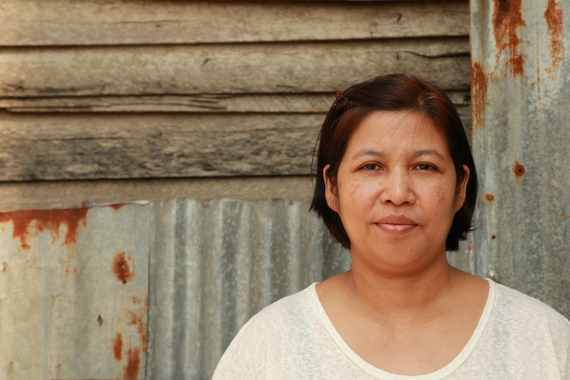Women are the most common victims that are vulnerable to Domestic violence in all parts of the world today.
New research from ActionAid, launched ahead of International Women’s Day, reveals the horrific reality that globally five women every hour die at the hands of a partner or family member. That’s one woman every 12 minutes.
If nothing changes, domestic violence will have taken the lives of half a million women by the year 2030.
Violence against women is a global issue, a violation of a woman’s fundamental human rights and one which threatens the lives of millions of women every day, with women living in poverty often at greater risk.
In the UK charities like Women’s Aid are doing incredible things to tackle issues of violence. In the rest of the world, it’s the work of women’s rights organisations that are vital in bringing an end to violence against women and girls.
Last month, I traveled to Myanmar to meet some of the women who are leading the fight against violence.
Thuzar Tin is the leader of the Women’s Federation for Peace (WFFP), which she set up in 2009 when she noticed rising violence against women in her community after a devastating cyclone.
We met at her home in Yangon where her makeshift office was set up. Women frequently arrive at her organisation having been beaten by their husbands, They often have little knowledge of their rights.
Although in poverty, many are not allowed to work by their husbands and so are financially dependent. Thuzar and her volunteers train the women in their rights as well as to sew and make soap, empowering them to demand the freedom to set up their own small businesses and generate their own income. They also provide psychosocial counselling and legal support.
As I was there I was struck by how many women saw domestic violence as almost normal, the trainings being given to women are often the first time they’re hearing that they have a right not to be beaten.
As for many women’s rights organisations in Myanmar, the Women’s Federation for Peace’s most pressing challenge is that they are chronically underfunded. She told me: “Everyone here is passionate about this work, but we need funds to survive.”
Her group is part of the Women’s Organisations Network which consists of over 30 small, grassroots organisations that are working together to support women in Yangon. Without funding, these organisations are in danger of closing, leaving the women in their communities with little to no viable options for support and nowhere to turn.
Not only are these organisations often the first, and most important, source of support for women in crisis, they are also vital drivers of women’s movements, pushing for change over time. Evidence shows that the work of strong, independent women’s rights organisations is the single most effective way to address violence against women and girls.
ActionAid’s new briefing Fearless Women and Girls – leading the way, transforming lives highlights the enormous funding gap for women’s rights organisations in developing countries. It calls on the Government to commit to boosting the proportion of aid going directly to women’s groups working on the frontline. ActionAid is recommending at least £70 million over the next three years to be taken from the existing aid budget.
In Myanmar, domestic violence threatens the lives of women every day and the awful reality is that globally the killing of women by their partners or family members is so common that it rarely makes headlines.
Violence against women is so ingrained in our global society that we have almost become accustomed to the statistics that surround it.
But behind every statistic is a real woman, a woman who has lost her life, or suffered violence because she is a woman.
We have a moral duty to speak out and stand with these women. We must show the government that providing vital funding for them is not a choice, but a matter of responsibility.
Stand with fearless women and girls to end violence: call on the UK to fund the life changing work of women’s rights organisations around the world
Source: http://www.huffingtonpost.co.uk/



